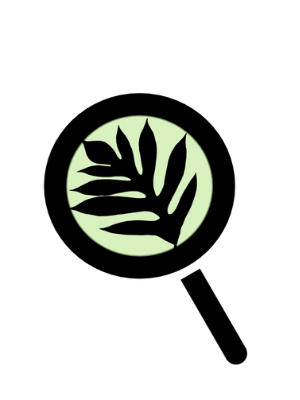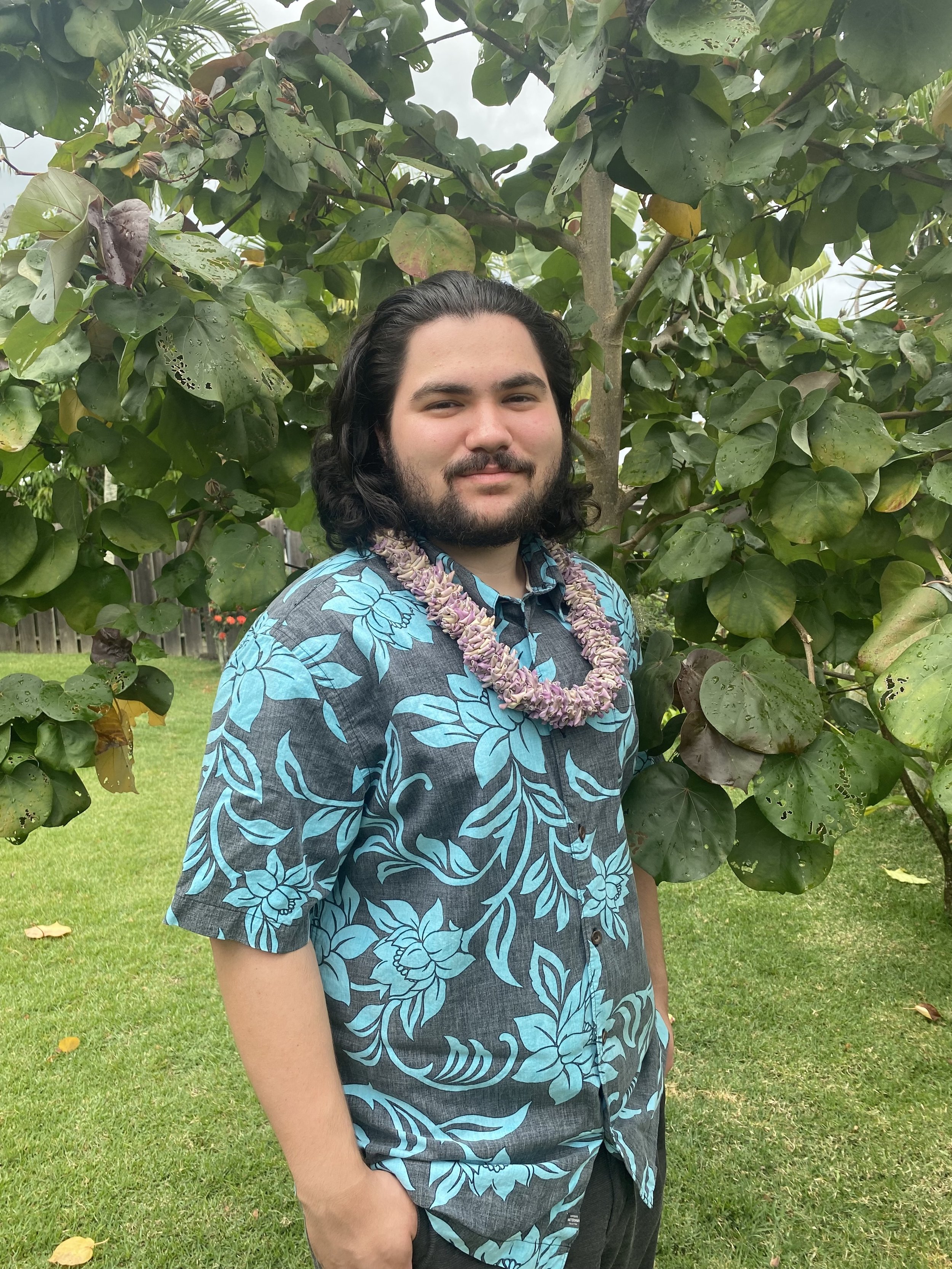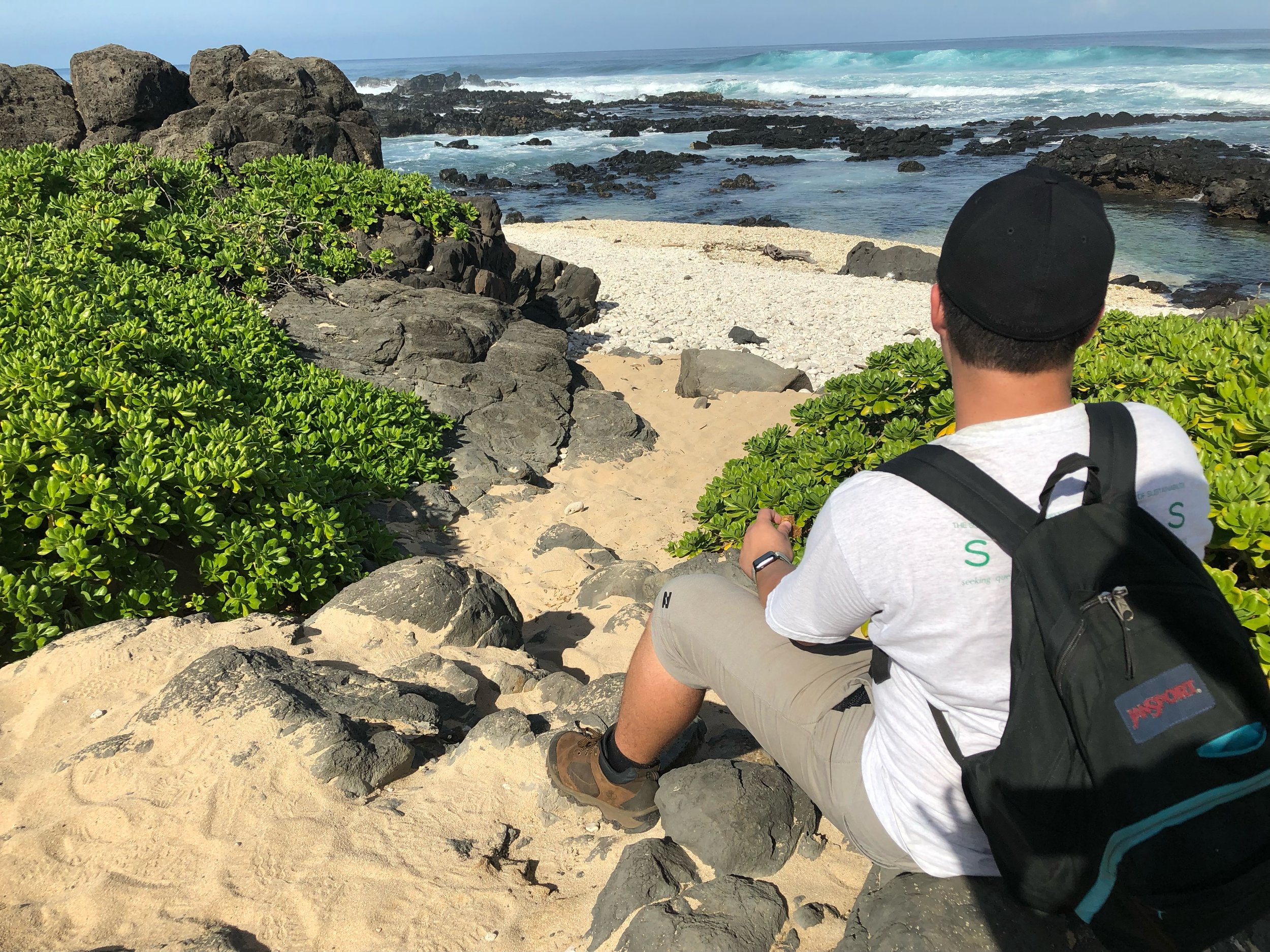
From Seeds to Sowers — SEEQS Alumni
Jaydon Laboy
My name is Jaydon Laboy. I graduated from SEEQS in 2018, I graduated from Mid-Pacific Institute in 2022, and I am currently in my second year at Chaminade University. I am hoping to graduate with a Bachelors in Environmental Science. I am also an intern at Chaminade that does limu population monitoring and water quality testing.
What was your favorite memory from an EQS class at SEEQS?
My favorite memory from an EQS class was one of our field trips to a beach park. I remember one of our teachers (Mr. Peter Holland) had used our experience and wrote about it. He explained the entire trip from start to end and stressed the importance of adding lots of detail when writing so that you can have a very vivid picture when reading back on it for future reference. I did not listen, which really came back to haunt me when 8th grade defense rolled around. Since then I've done my best to write things with lots of detail to make sure it's very clear and understandable for future references.
What sustainability skill is the most meaningful to your life since SEEQS? To your current activities?
Managing Effectively: This is one of the most important skills someone could ever learn. I believe that this is one of the best skills to have in a college setting. You have a lot of freedom, and the due dates are often very far out. A lot of students don't realize how much work they have until the due date arrives and they have many assignments to finish. It is important to break your work into smaller segments to ensure that you have ample time to work on it, reflect, and receive feedback. I feel that skill has really helped me to achieve a good work ethic which has helped me to succeed in my classes and limit the amount of schoolwork related stress I feel.
What are one or two experiences from your time at SEEQS that inspired a new passion or helped you further develop your interests?
One experience that really inspired me to pursue a career related to the environment was when we took a field trip to the Heʻeia Fishpond. I learned that the mangrove surrounding it is highly invasive and very bad for the surrounding environment. I had learned that it attracts sediment and contributes to decreased water quality by dropping large amounts of organic matter, resulting in nutrient loading and anoxia, sedimentation, and hyper salinization. These conditions favor invasive fish and plant species which throw off the ecosystem within the fishpond. That field trip really introduced me to the detriments of invasive species and how much of a problem they are in Hawaii. I hope to do something related to invasive species removal and/or native species management and rehabilitation.
How did SEEQS change or deepen your understanding of sustainability and its importance to our community and world?
SEEQS taught me that sustainability is being able to maintain ourselves with minimal impact on our natural world. I learned that sustainability is crucial to our community and world because it addresses interconnected environmental, social, and economic challenges, promotes resilience and well-being, and ensures a more equitable and prosperous future for all. SEEQS taught me that the Ancient Hawaiians had a very sustainable and environmentally beneficial way of farming and living and I believe that if we re-introduced some of those practices we would have a much healthier environment. For example, I believe that by reintroducing native plants to our forests we would see a healthier environment since there would be less runoff, more shade, less erosion, as well as an increase in native animal species. I believe that our community would really benefit from learning about the practices of Ancient Hawaiians and how prosperous the environment was.
Brag about yourself. What is one achievement (or multiple) you've accomplished since SEEQS that you are proud of, big or small?
One achievement that I'm really proud of is my Eagle Scout rank. I had actually quit Boy Scouts and after learning about environmental stewardship and what it means to be a sustainable person during an EQS class, I realized that Boy Scouts shares those same values. So, I decided to go back since I felt like it would be cool to apply the knowledge and skills i've learned from SEEQS to the many outdoor activities we did in Boy Scouts. And I was very glad I did, because I realized that I love being outside and doing work to help benefit the environment. And it just so happened that SEEQS allowed me to do my Eagle Project on their campus. I helped design and build an Aquaponics system on the campus with the help of a group of very Innovative and brilliant students. It was great to hear their opinions and design choices. They gave me a chance to learn how to lead and teach a group of students. I was also really glad that I was finally able to give back to SEEQS since they helped inspire me to get back into scouting and provided me with so many amazing experiences as well as a lot of useful knowledge that I was able to use in Scouting and School.
What do you wish more people knew about what it means to be a steward of planet Earth and a healthy, effective citizen of the world?
I wish that more people learned how easy it is to be a steward of the planet and an effective citizen. It's as easy as leaving a place better than when you found it. By throwing away your trash and picking up litter, you are helping to clean and preserve the environment. I also believe that everyone should volunteer at an event that is meant to better the environment. I've seen the things that a small group of people can do in a short time span. I volunteered at Hamakua Marsh and we had to clear Haole Koa from the side of a mountain. After a few hours we managed to clear it all and get a tarp over the mountainside to prevent the Haole Koa from growing back. And then after 3 months, a different group took the tarp off and the employed workers planted native trees in the place of Haole Koa. I believe that if more people participated in volunteer work the environment would be greatly improved, and there would be a stronger sense of community which would inspire more people to become more effective citizens and stewards of the environment.








